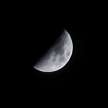Islamic Prayer
What it is, why it's done, and what is recited

Have you ever wondered about Islamic prayer, why it is so emphasized, or what Muslims recite during prayer? Then this is for you!
Disclaimer: This is not meant to be a how-to or instructional work. The function of this post is to simply educate on what Muslim prayer is and the basics of what is said/recited in order to better non-Muslim's understanding. Having said that, it is also not my intention to push or force a religion or belief on anyone. This has been posted for educational purposes for those seeking this topic only. This is also just a surface scrape of the basics, and is not a completely in-depth study of prayer.
Prayer as a Pillar of Islam
Prayer is one of the five pillars of Islam, and is believed to be the defining aspect of a Muslim – it is what differentiates a believing Muslim from a non-believer.
Muslims pray five obligatory times per day, around dawn, noon, afternoon, dusk, and night.
It is said that Islam's Prophet Muhammad (peace and mercy of God be upon him) was instructed about prayer on his journey/ascension to Heaven. The messages of the Quran were brought to Muhammad (peace and mercy of God be upon him) from God through the angel Gabriel, but this revelation about prayer was given to him directly.
He was first instructed to tell Muslims to pray 50 times per day. On his way back from Heaven, Muhammad (peace and mercy of God be upon him) passed Moses, and Moses advised him that he should have this number lowered, as people wouldn't be able to achieve 50 times per day. The number was lowered to 45, then 40, and then lowered to five.
Can you imagine 50 times per day? That's just over twice per hour (including the night hours)!
The Five Obligatory Prayers
The five obligatory prayers are (consecutively): Fajr, Dhuhr, Asr, Maghrib, and Isha.
Fajr is prayed at the first break of dawn, usually a couple of hours before sunrise.
Dhuhr is prayed when the sun is at its highest point in the sky.
There is also the weekly Friday prayer (called Jummah prayer) which is prayed in place of Dhuhr in congregation at mosques at the time of Dhuhr.
Asr is prayed in the late afternoon, at about when the sun is halfway down from its highest point to the horizon.
Maghrib is prayed just after the sun has gone down.
Isha is prayed once the red afterglow from sunset has completely gone.
Of course, since prayers are dependent on the sun and light, they will change by seasons and region, and actually change slightly every day. The only prayer that does not really change is Dhuhr, because the sun is typically at its highest point every day at the same time.
An important note: Since prayer times are determined by the sun, they are affected if you are in a region that participates in daylight savings time changes. So if the time goes back an hour, prayer times will change by an hour as well.
These times are also significant in understanding Islamic fasting (one of the other pillars of Islam), as a Muslim will fast from Fajr to Maghrib.
The Translation of Prayer
So now that we've discussed a little bit of background information about prayers, let's dive into what Islamic prayer actually is!
Islamic prayer is divided into units, in which different prayers have different prescribed units. Each unit of prayer consists of recitation while standing, bowing, prostrating, and sitting. The particular recitations will change depending on the unit number, and sometimes what prayer it is, but here I will go over the general recitations made during a single unit of prayer.
It is important to first note that everything recited in prayer is recited in Arabic. Muslims greatly emphasize the importance of Arabic, since it is the original language of the Quran, and preserving the revelation in its original form/language (as translation often does not do it great justice). I will, for the sake of simplicity, provide the recitations in English only.
I would like to note that various translations might have slight differences. Arabic has exponentially more words than English does, and there may be slight variances depending on the translator.
I would also like to note that Allah is just the Arabic word for God. It directly translates to God, and does not refer to a separate name or deity.
Firstly, a Muslim will begin prayer by saying the takbir (which is recited multiple times throughout prayer, but I will only list it once):
Allah is the Greatest.
Then they will continue by reciting the first chapter (or surah) of the Quran, called Surah al Fatihah, meaning The Opener, which translates in English to:
In the name of Allah, the Entirely Merciful, the Especially Merciful.
All praise is due to Allah, Lord of the worlds –
The Entirely Merciful, the Especially Merciful,
Sovereign of the Day of Recompense.
It is You we worship and You we ask for help.
Guide us to the straight path –
The path of those upon whom You have bestowed favor, not of those who have evoked Your anger or those who are astray.
Then, another short surah of the Quran is recited, if in the first or second unit of prayer. For example, Surah al Ikhlas, meaning The Sincerity, which translates in English to:
In the name of Allah, the Entirely Merciful, the Especially Merciful.
Say, "He is Allah, who is One,
Allah, the Eternal Refuge.
He neither begets nor is born,
Nor is there to Him any equivalent."
Then, the following is recited three times:
Glory be to my Lord, the Almighty.
Followed by:
Allah hears whoever praises Him.
Our Lord, to you be the praise.
Then, recited three times:
Glory be to my Lord, the Most High.
Followed by:
O my Lord, forgive me.
And recited again, three times:
Glory be to my Lord, the Most High.
Then, if in an even number or last unit of prayer, they will recite the tashahhud, which also includes the declaration of faith (shahada), which translates in English to:
All the best compliments and the prayers and the good things are for Allah. Peace and Allah's mercy and blessings be upon you, O Prophet. Peace be upon us and on the righteous servants of Allah.
I bear witness that none is worthy of worship but Allah, and I bear witness that Muhammad is Allah's servant and messenger.
Then, if the last unit of prayer, they will send blessings towards the Prophet Muhammad (peace and mercy of Allah be upon him) and Prophet Abraham (peace be upon him), which translates in English to:
O Allah, bestow Your favor on Muhammad and the family of Muhammad as You have bestowed Your favor on Abraham and the family of Abraham. Surely, You are Praiseworthy, the Great.
O Allah, bless Muhammad and the family of Muhammad as you blessed Abraham and the family of Abraham. Surely, You are praiseworthy, the Great.
The prayer then ends by saying (once to the left and once to the right):
Peace and mercy of Allah be upon you.
+
I would like to again reinforce the fact that this is a very basic summary of Islamic prayer, and there is lots more to know about it!
This is simply a surface-level run-down of what Muslims say during prayer, and what prayer means to them.
I invite and encourage you to read more about Islamic prayer, and you can find instructions, as well as the Arabic and Arabic transliteration, for prayer on myislam.org/how-to-pray-salah/.
+
Thank you for reading! You can find more work about Islam on my page, or using the links below:
If you have any questions, or believe I have misled in some way, or relayed something inaccurately, please comment! Thank you.
About the Creator
Belle
I host unofficial challenges and enjoy writing microfiction and poetry.
ALL EYES ON RAFAH. 35k+ murdered in Palestine. 80k+ injured. 25k orphaned. ~10k missing/under rubble.
Top Stories:
2023 - SEPT
Enjoyed the story? Support the Creator.
Subscribe for free to receive all their stories in your feed. You could also pledge your support or give them a one-off tip, letting them know you appreciate their work.






Comments (6)
I learned more from this than I ever learned during R.E. in school! My favourite bit is how the prayers are linked to the sun. Does this would make a person who prays at those times every day more tuned in to sunrises and sunsets?
Thank you for sharing insights about something that means so much to you. I learned a good deal reading this article.
Very interesting rituals, Belle. I'm very glad that Vocal platform is now allowing all of us the freedom to express our religion and faith.
Love learning about different religions! Thanks for this information, Belle! 💌
Omgggggg 50 times a day???? So glad it was lowered to 5 times a day. I learned a lot from you today. Thank you so much for sharing this 🥰🥰🥰
Your detailed explanation of the five daily prayers and the meanings behind the recitations was both informative and engaging. I appreciate the respectful and educational approach you took to introduce this important aspect of Islam to a broader audience. Thank you for your effort in promoting understanding and cultural awareness. I look forward to reading more of your work. Best regards, Dr. Jay